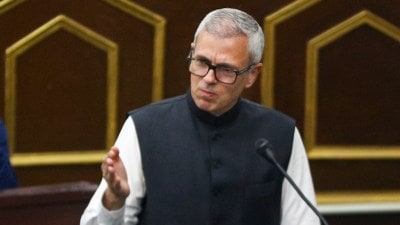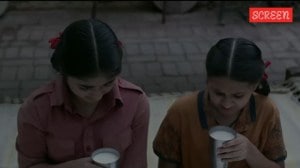What is earth art?
This work of earth art or environmental art by Anish Kapoor,The Farm,has been under construction since 2003.
Somewhere in Auckland,a red,funnel-shaped tunnel of fabric and steel drapes itself across a hill. This work of earth art or environmental art by Anish Kapoor,The Farm,has been under construction since 2003. Those glimpsing it for the first time might have to enlarge their conception of art,dramatically combined here with architecture and the environment. As might viewers of the ongoing exhibition of Kapoors works at the National Gallery of Modern Art in New Delhi,and Mehboob Studios in Mumbai. Kapoor says he wishes his sculptures to manipulate the viewer into a specific relationship with space and time,but he wasnt the first to be motivated by this artistic impulse. Thatd be the American artist,Robert Smithson,who coined the term earthworks and the genre with his 1970 work Spiral Jetty in Salt Lake in Utah. Composed of mud,salt crystals,basalt rocks,earth and water,the 1,500-ft-long spiral juts out from the northwestern shore,and is only visible when the lake level falls below an elevation of 4,197 ft. This,and the crimson algae that vividly colours the water,are living,dynamic features in the work.
Outside America,leading land artists include British sculptors Andy Goldsworthy and Richard Long,and the canonical German avant-garde experimental artist and sculptor Joseph Beuys. Christo,that famous wrapper of landmark bridges and buildings,is also associated with the movement. In India,artist Valsan Koorma Kolleri makes site-specific installations using ecologically conscious found objects such as wood,leather,bones,hair,nests and hives.



- 01
- 02
- 03
- 04
- 05




























